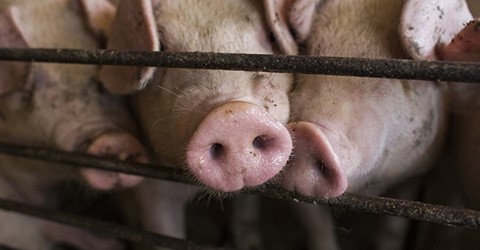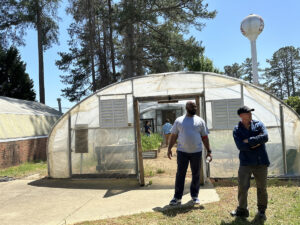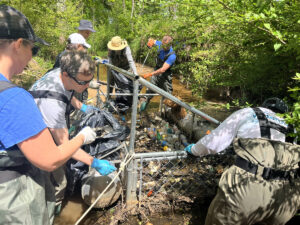News

Photo: Alex Boerner/INDY Week
We are very pleased with the decision and grateful to SELC for their efforts. The EEG grant program provides non-profits, universities, and local governments resources to fix long-standing environmental problems and conserve land for the public’s benefit. These funds are critical in addressing pollution issues to our waterways that Smithfield Foods has created with their industrial animal production facilities and outdated waste treatment across eastern North Carolina. – Heather Deck, Executive Director
Read SELC’s full article below, or visit their website here.
On Friday, April 3rd, the North Carolina Supreme Court delivered a victory for North Carolina and environmental nonprofits, holding that grants awarded under the 2000 agreement between the Attorney General for the State of North Carolina and Smithfield Foods, the largest pork producer in the world, can continue to fund important projects in the state, including land conservation, water quality restoration, and stormwater upgrades. The court held that the grant funds are not penalties, so there is no requirement to turn them over to the Civil Penalty and Forfeiture Fund.
Under the agreement, Smithfield committed to pay $2 million per year for 25 years to the state of North Carolina for such projects. This program is a small part of the agreement, which is meant to address the environmental damage caused by industrial hog operations and to rehabilitate the hog giant’s image after the devastation of Hurricane Floyd.
SELC intervened in the case on behalf of Sound Rivers and the North Carolina Coastal Federation to defend the grant program. Both Sound Rivers and the Coastal Federation received grants from the environmental enhancement program under the agreement.
This decision is a victory not only for our clients, but for environmental nonprofits throughout the state who benefit from this program, and for the air and the water of North Carolina and all of us who depend on them.
Related News

Tell NC to restore wetlands protections!
April 19th 2024

Position available: Stormwater Education Coordinator
April 18th 2024

Southern Nash next in line for stormwater projects
April 18th 2024

Xylem, Sound Rivers team up for cleanup
April 18th 2024

Sound Rivers launches new podcast
April 18th 2024

Swim Guide gearing up for a seventh season
April 11th 2024

Feedback needed for Jack’s Creek plans, projects
April 11th 2024

Pamlico-Tar Riverkeeper talks water quality
April 11th 2024

